Our favorite books of 2019

Go Deeper.
Create an account or log in to save stories.
Like this?
Thanks for liking this story! We have added it to a list of your favorite stories.
There are more great books than we could possibly name on a single list, but these titles rose to the top for offering something new, something gripping or something laugh-out-loud.
Fiction
‘American Spy’ by Lauren Wilkinson

This novel holds all the thrills and twists and tension of your favorite spy novels, but it stars a character who stands out from the usual cadre of spies we’re asked to follow in fiction. Marie Mitchell is a high performer within the FBI, running sources and seeking intelligence in mid-80s New York City, with the Cold War still driving everyone’s efforts. But, as a young black woman, she’s hit a wall and isn’t allowed to advance beyond her office’s expectations of her. So, she takes a new mission: She becomes entangled in a plot to undermine a powerful Communist leader. But there’s more at play than international politics. If you think you’re full up on Cold War thrillers, this one takes you down a different road.
— Tracy Mumford
Turn Up Your Support
MPR News helps you turn down the noise and build shared understanding. Turn up your support for this public resource and keep trusted journalism accessible to all.

‘The Border’ by Don Winslow
This is the third novel in Don Winslow's trilogy and I wish he wasn't stopping the series at three. Heck, I wish he was writing a nonagon. Yep, it's a word! Look it up. Winslow's books are sharp and suspenseful and remarkably well researched. I've read everything he writes; you can listen to my interview with Winslow now.
— Kerri Miller

‘Conviction’ by Denise Mina
Denise Mina leaves behind her procedurals for a romp of a crime story that takes on #MeToo, fleeting fame, the jet set and the British class system. An ideal beach read if you are making an escape from the cold.
— Stephanie Curtis
‘Disappearing Earth’ by Julia Phillips

I tore through this book this summer, and I’m still thinking about it. Normally, this is the kind of book I would pass on: It opens with two young girls going missing. I’m burned out on missing and murdered girls and women in fiction, but author Julia Phillips turns that trope into something new and stunning in this twisty novel told through the perspective of many women in a small, isolated Russian town. The plot is propulsive, and the setting comes alive in astonishing detail.
— Tracy Mumford
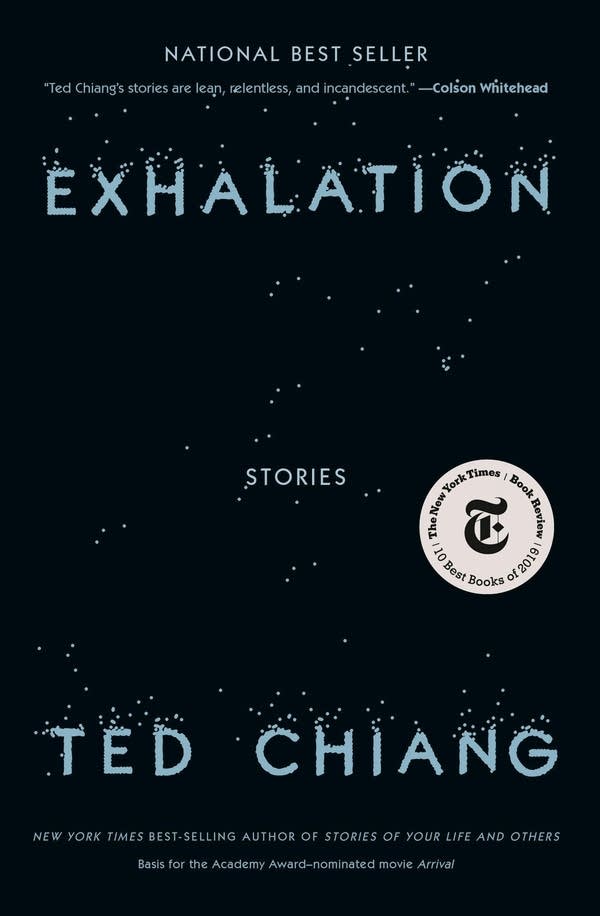
‘Exhalation’ by Ted Chiang
These stories with shake you, challenge you and infiltrate your dreams. Ted Chiang’s science-fiction collection delivers devastating and brilliant short stories. Each one delivers — give yourself a breath between each one.
— Tracy Mumford
‘Fleischman Is In Trouble’ by Taffy Brodesser-Akner
The funniest book of the year is also an insightful look at marriage, sex, parenthood and how we measure success.
— Stephanie Curtis

‘Gun Island’ by Amitav Ghosh
For this thriller writer, Amitav Ghosh responded to a challenge he had himself thrown to novelists in his nonfiction book book, “The Great Derangement,” to write serious fiction about the climate crisis. “Gun Island” follows the adventures of a middle-aged historian and rare book dealer who finds himself traveling around the world after a chance visit to a shrine dedicated to an obscure god on a tidal island just off the Indian coast. As his hero moves between India, New York and Venice Ghosh weaves in the threats to coastal communities, the impacts of climate caused migration, and the possibility of poisonous snakes and insects appearing in unexpected places. He even weaves in a little love story. This is a great read, which leaves you with a lot of food for thought.
— Euan Kerr

‘Heaven, My Home’ by Attica Locke
Locke grew up in Texas and her novels embrace the heat and racial history and complicated politics and culture of her home state. This book, part of Locke's Highway 59 series, is set in the months after the 2019 election when we encounter Texas Ranger Darren Matthews again. (He first appears in Locke's "Bluebird, Bluebird.") He's troubled and noble, angry and compassionate. Locke recently told Fresh Air that she initially resisted writing about a cop because she doesn't like writing about establishment characters ..."so it was a conundrum for me to figure out how to write this character and I kind of found my way.”
— Kerri Miller

‘Lanny’ by Max Porter
A quick read which will settle in your soul. In “Lanny,” Porter, who beautifully captured a family’s pain at the loss of a mother in “Grief is the Thing with Feathers,” turns his attention to a small English village about to plunge into turmoil. It’s an old place inhabited by an even older lifeforce Dead Papa Toothwort who delights in eavesdropping on the villagers. Their thoughts and secrets literally swirl across the pages as Porter plays with the typography to illustrate the way even a tiny community can be filled with human emotion. Papa Toothwort pays particular attention to Lanny, a precocious elementary school student with a talent for insightful non sequitur whose purity of spirit lights up the world around him. When Lanny disappears one day accusations fly, ugliness erupts, and human flaws are exposed. This book is remarkable.
— Euan Kerr
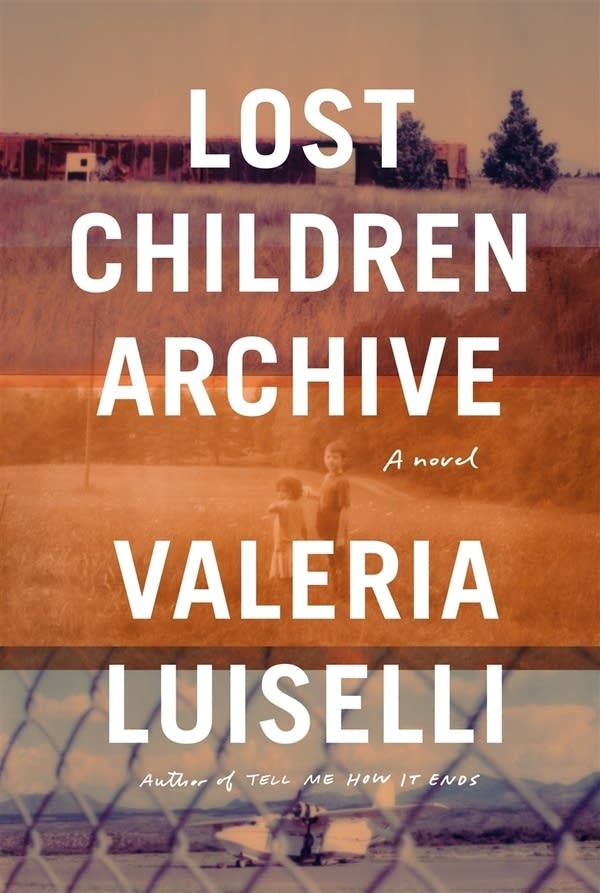
‘Lost Children Archive’ by Valeria Luiselli
I picked this book up based on the recommendation of bookseller Matt Keliher, from Subtext Books, so I’ll share that with you, too. "There's a scene in the first 10 pages of this book that is probably my favorite scene in fiction this year," Keliher told me. "It's a beautiful portrait of a small family in a really intimate moment, and it sets the stage for the rest of this book in a really interesting way.” Valeria Luiselli’s novel follows a family on a road trip from New York City to Arizona. "And the whole way on this road trip, you get an interesting portrait of the border histories of these states, and also the migrant experience of coming north into America. It is just a brilliant piece of storytelling.”
— Tracy Mumford
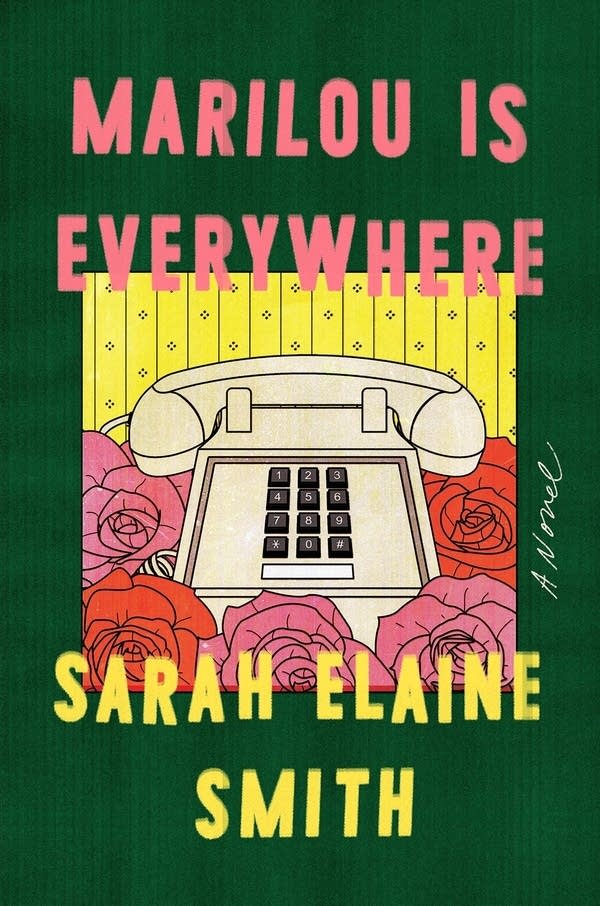
‘Marilou is Everywhere’ by Sarah Elaine Smith
This novel also came to me based on a bookseller’s recommendation, so I’ll let Emilie Sommer from East City Bookshop hook you, too. At the center of “Marilou is Everywhere” is a peculiar plot: A girl has gone missing in a rural Pennsylvania town, and another girl in town decides to try and take her place. “But it’s not a mystery,” said Sommer. “It’s very much a coming-of-age story. … It is the most surprising book I have read all year.”
— Tracy Mumford
‘Memoirs of an Ex-Prom Queen’ by Alix Kates Shulman

"Memoirs of an Ex-Prom Queen" is a 2019 reprint of a 1972 bestseller that should be considered a classic. Sasha, the 20-something heroine of the novel, feels her best days are behind her as she faces the prospect of foregoing an academic career to be the helpmeet to an academic who is her intellectual match. While set in the past, it doesn't feel dated.
— Stephanie Curtis

‘The Nickel Boys’ by Colson Whitehead
Colson Whitehead gives voice to boys tortured and murdered in a reform school. Based on real events, the book is a painful page turner.
— Stephanie Curtis
‘Overstory’ by Richard Powers

Richard Powers astonishes me with his range and curiosity. His novels have explored genetics and artificial intelligence and the neuroscience of music. "Overstory" investigates the pulsing, breathing, interconnected lives of trees and the expanse of this novel is remarkable. Listen to our interview.
— Kerri Miller

‘The Ten Loves of Nishino’ by Hiromi Kawakami
As part of my effort this year to read more books in translation I came across this slim volume originally published in Japan in 2003, recently published in English. It’s 10 accounts of encounters with a man who is remarkably successful with women, but remarkably unsuccessful in love. Kawakami is one of Japan’s most popular contemporary novelists, and she creates a portrait of a man who initially seems enviable but gradually reveals his shortcomings.
— Euan Kerr

‘The Water Dancer’ by Ta-Nehisi Coates
My favorite book tends to be the last one I have read, and this is true of Ta-Nehisi Coates’ first novel. However it’s going to be hard to knock this from the pedestal of being the best book I had read this year. It is a magnificent telling of a story of Hiram Walker, a young man born into slavery on a failing Virginia plantation. His father owns the place and openly acknowledges Hiram as his son. However Hiram knows he can be sold at any moment, just as happened to his mother. Coates’ elegant language reveals the what Hi sees as the hidden world of slavery, and describes his adventures when he decides to escape.
— Euan Kerr
Nonfiction
‘Agrippina: The Most Extraordinary Woman of the Roman World’ by Emma Southon
The British cover of "Agrippina: The Most Extraordinary Woman of the Roman World" comes with an additional cheeky subtitle the American version neglects: "Empress, Exile, Hustler, Whore." They should have kept the title so readers would know they are in for a delightful, bawdy biography. It's not just the story of a woman who's been maligned for centuries; it's a history about how history is decided.
— Stephanie Curtis
‘A Team of their Own: How an International Sisterhood Made Olympic History’ by Seth Berkman
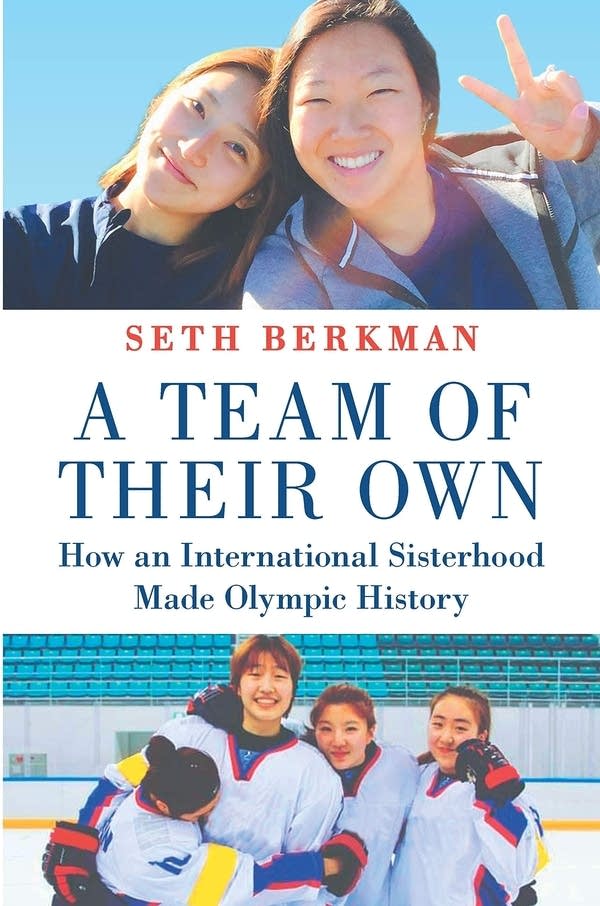
Seth Berkman’s account of the Korean Women’s Ice Hockey team for the 2018 Winter Olympics is a stream of the ‘you can’t make this up’ stories. From South Korean Olympic officials blindly sending email invitations to U.S. collegiate players who looked Korean in their yearbooks to join their team, to the announcement a month before the game that North Koreans would be part of the team too, the story of what became the Unified Korean team is remarkable. It’s also one which attracted albeit briefly the attention of the world. Another surprise is how much time the team spent training in Minnesota in the two years leading up to the games. Berkman, a Korean adoptee himself, tells the very human story of young athletes who have already made huge commitments to their sports being plunged into a crazy mix of politics, sexism, and overwhelming odds, but still coming through with remarkable strength and grace.
— Euan Kerr

‘The Great Pretender’ by Susannah Cahalan
Susannah Cahalan first caught everyone’s attention with her memoir “Brain on Fire,” about a debilitating mystery illness that upended her life and ravaged her mind, making her nearly unrecognizable to those closest to her. Now, she turns her attention to an experiment from the 1970s that aimed to uncover the realities of life in psychiatric wards across America. Eight volunteers managed to get themselves admitted to asylums, and then tried to find their way back out.
— Tracy Mumford

‘Good Talk’ by Mira Jacob
This is simply a beautiful book. Mira Jacob has used photography, illustration and collage to craft a memoir in the style of a graphic novel. Jacob, who is half-Jewish and half-Indian, captures her discussions with her young son about race, love, sexuality, all in the context of the current American political reality.
— Tracy Mumford

‘Furious Hours’ by Casey Cep
A serial killer and Harper Lee, of “To Kill a Mockingbird" fame? That hooked me. Casey Cep traces the work of Lee, who spent years researching a true crime novel that was ultimately never published. Cep explores the crime that Lee was obsessed with: A preacher in Alabama who stood accused of murdering his family for an insurance payout. There’s been so much hunger for more about the Lee, who died in 2016 — this is a satisfying and dark tale.
— Tracy Mumford
‘Here We Are: A memoir’ by Aarti Shahani

Shahani’s story of an immigrant family torn apart by the blunt tool of immigration law and an uncaring courts system shows how a misstep or bad advice can mean the difference between disaster or fulfillment of the American dream. Shahani’s father and uncle were thrown in jail in New York after being accused of laundering money through their electronics business for a Colombian drug cartel. The charges came as a complete surprise to her father, and he denied them. A lawyer advised them to take a plea bargain without informing them they would be deported following the completion of their sentences. Shahani, who until recently covered Silicon Valley for NPR, captures the never-ending worry as she became her family’s main advocate, trying to find a way out of the legal quagmire. It’s a remarkable story that peels back the realities of living under a broken immigration system.
— Euan Kerr

‘How We Fight For Our Lives’ by Saeed Jones
I first encountered Saeed Jones’ powerful voice in his poetry. His memoir brings equal beauty to his story of growing up as a young, black, gay man from the American South. He joined MPR News’ Brandt Williams on stage for Talking Volumes; you can hear their conversation now.
— Tracy Mumford
‘In the Dream House’ by Carmen Maria Machado

In her memoir, Carmen Maria Machado lets readers in on some of the most brutal moments of her life, dissecting an abusive relationship and discussing her own identity and coming-of-age. Her framework is mesmerizingly original, as she weaves in topics and tropes from “Star Trek” to haunted houses.
— Tracy Mumford

‘Lakota America: A New History of Indigenous Power’ by Pekka Hämäläinen
If you are a fan of the 1619 project, here’s another new history that will alter how you see our past.
— Stephanie Curtis

‘Midnight in Chernobyl’ by Adam Higginbotham
Adam Higginbotham’s book chronicles the catastrophic nuclear power plant disaster of 1986. Whatever you think you know about the meltdown and its aftermath, this book still delivers new and riveting details on the worst nuclear disaster in history.
— Tracy Mumford
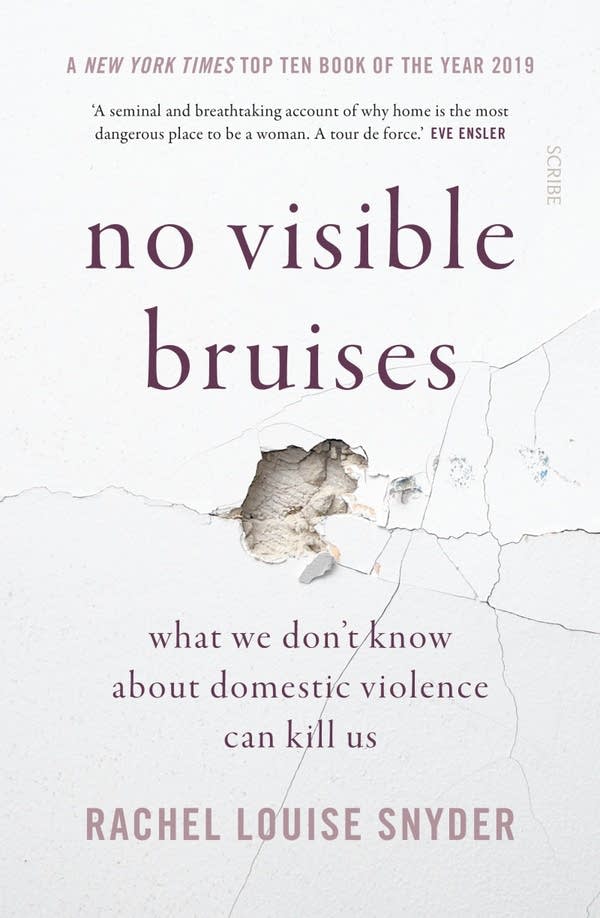
‘No Visible Bruises’ by Rachel Louise Snyder
As a journalist, I've been covering intimate violence tragedies and policy for much of my career, so I questioned whether there was anything particularly new to be understood about it. Rachel Snyder's book upended that assumption from the beginning, when she challenged even the language that we use for it. Domestic, she warns readers, makes this violence sound like something that should be contained within the home. The term "intimate" signals the true transgression of this type of violence. You can listen to my interview with Snyder, as well.
— Kerri Miller

‘She Said’ by Megan Twohey and Jodi Kantor
I followed Megan Twohey and Jodi Kantor’s original reporting on Harvey Weinstein and his history of sexual harassment when it was first released, but their first-person account of how the reporting came together is a fascinating look at what it takes to responsibly report on big stories with serious stakes. Twohey and Kantor describe in detail — down to including actual emails they exchanged with sources — how they put together the pieces to expose a long-buried history of abuse.
— Tracy Mumford

‘What You Have Heard is True; by Carolyn Forche
Forche’s remarkable memoir begins in 1978 with the unexpected arrival of a Salvadorian activist in her Californian driveway with an invitation to come to his homeland to document an impending civil war. The invitation mystified Forche, as she is a poet, but against the advice of her friend she went with him and plunged into what became a brutal civil war which has haunted her ever since. “What you have heard is true,” which was nominated for a National Book Award, is a searing story not just in her account, but also in how we have forgotten such recent horrors.
— Euan Kerr

‘Underland’ by Robert Macfarlane
A Cambridge academic with a talent for helping us see the world around us in different ways, turns to what’s beneath our feet. In “Underland” Robert Macfarlane not only visits mines, catacombs, cave systems, and military installations, he describes how what happens underground has shaped human history.
— Euan Kerr


